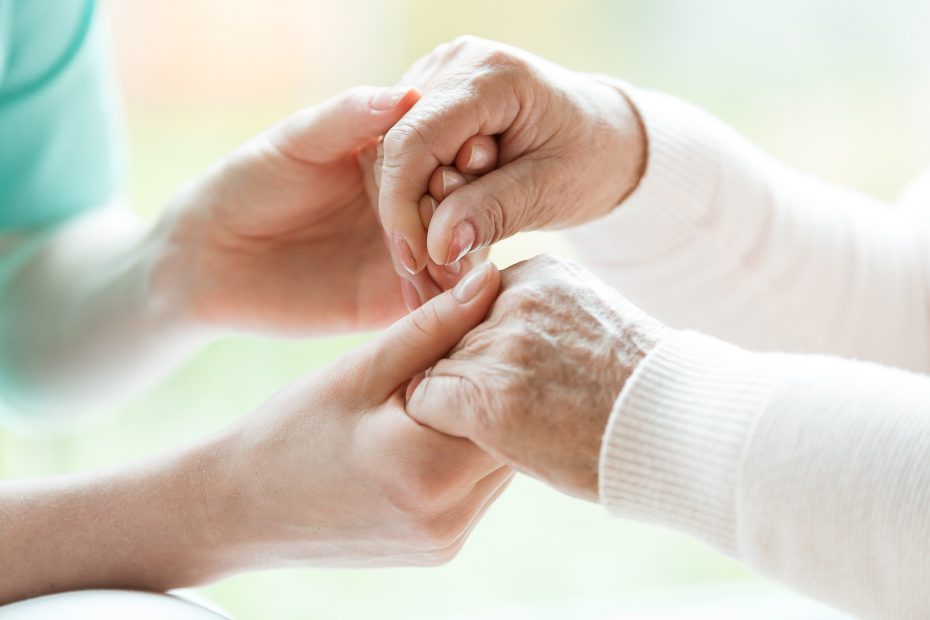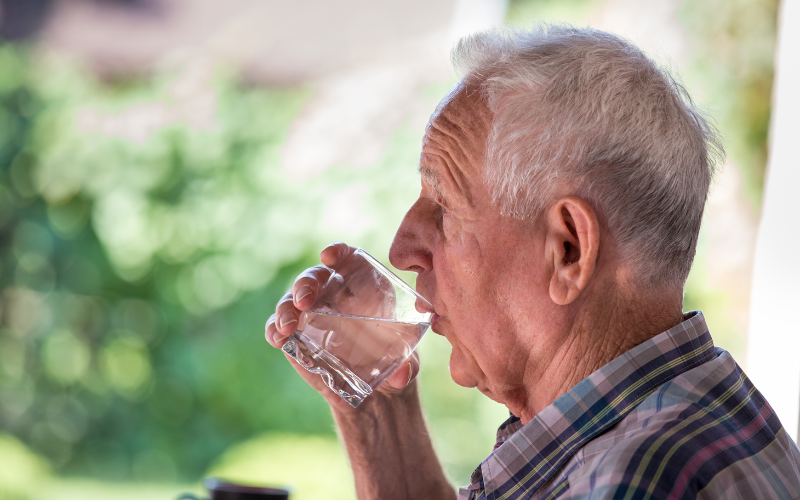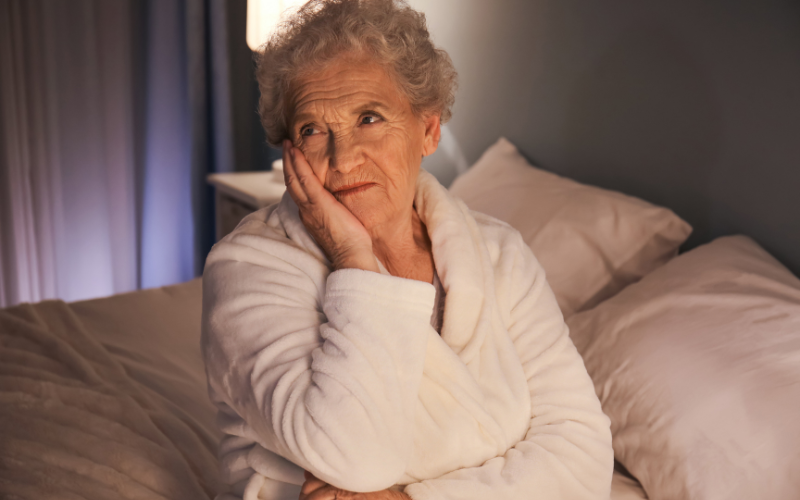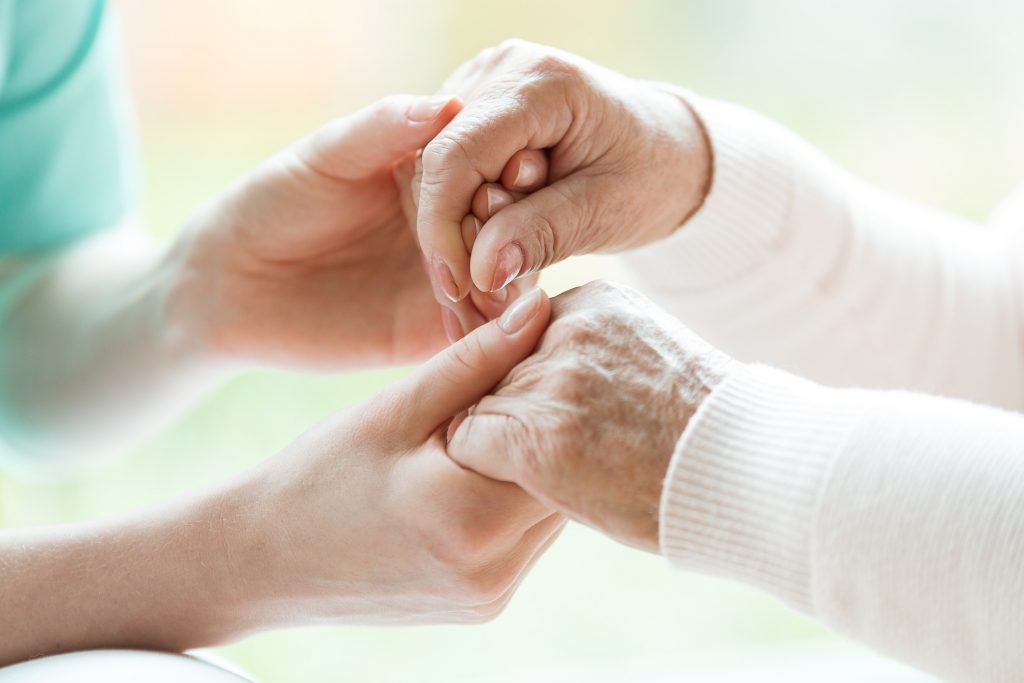
As with many body parts, the fingernails change with age. A variety of influences, from nutritional deficiencies to long-term exposure to ultraviolet light, affect how fingernails grow in older adults. Caring for fingernails continues to be important as people get older.
Fingernails are made of layers of tissues known as keratin, which is also present in hair. Keratin cells are not alive, which enables people to trim fingernails. However, the formerly living cells still need nutrients. Considering this, it is no wonder that nails are indicative of general health.
The fingertips are among the strongest parts of the hand. With their tough outer covering, fingernails have many practical uses. One of the most vital functions of the fingernails is that they give individuals the ability to perform everyday activities, like securely gripping items.
How do fingernails change with age?
In the elderly, fingernails take on different characteristics. Nail growth slows with age. Instead of growing 3mm per month on average, the nails of a person who is 85 years old may only grow about 2mm in length each month.
The aging process also produces brittle, thicker fingernails. Severe brittleness can result in ridges that develop along the length of the nail; fragmenting of nail tips is also possible. Significant changes to nail texture can be caused by anemia, hardening of arteries, and hormonal issues.
Seniors may have thicker or thinner nails. Conditions, like psoriasis and eczema, for instance, can cause the growth of thick nails. The thickening and discoloration of nails are most commonly caused by fungal infections, which predominantly affect the elderly population.
Nail contour also changes with age. The dramatic change to the curvature of fingernails is known as clubbing, which presents as extremely rounded nails. Curved nails commonly occur alongside cardiovascular, endocrine, and gastrointestinal diseases and should be examined by a doctor.
How do caregivers provide fingernail care?
Fingernail health is important. The regular maintenance of nails prevents fungal infections and ingrown fingernails. Proper fingernail care also reduces the likelihood of infections of the hands. Seniors avoid scratching or otherwise injuring themselves by keeping their fingernails trimmed and clean.
Professional and family caregivers play an integral role in the fingernail health of the elderly. Caring for nails should be a part of hand hygiene. Unfortunately, however, nail care is often overlooked. Pay attention to the health of nails in seniors, which can reveal a good deal about overall health.
1. Trim Fingernails
Use a nail clipper to regularly trim the senior’s fingernails. Or, if the senior is able, allow her to complete the task independently. As mentioned, aging peoples’ nails can be thicker, making it difficult to trim. Fingernails soften after a warm shower, making it a better time to cut fingernails.
Caregivers should hold the senior’s fingers steady with one hand and trim the nails with the other. Using a fingernail clipper, cut the nails straight across. While preferences vary, try to trim the nails short enough to meet the tip of the finger. Nails should be cut once per week.
2. Scrub Fingernails
Dirt, germs, and dead skin cells gather beneath long, uncut fingernails. When the senior washes her hands, encourage her to gently scrub underneath the fingernails using a fingernail brush. This tactic loosens and removes the accumulation of dirt and gunk under the fingernails.
3. Dry Nails
After each handwashing, seniors should thoroughly dry their nails. A hand towel is sufficient to absorb any remaining moisture from handwashing. Wet nails are more prone to breakage. Plus, lingering moisture around the fingernails can cause the bacterial infection Staphylococcus aureus.
4. Moisturize
After washing and drying hands, seniors should moisturize their nails and cuticles. Frequent moisturizing is advised to help prevent painful hangnails (do not pick the skin around the hangnails) and keep nails flexible. Also consider regularly applying nail oils to the surface of the fingernails.
5. Cut Hangnails
Picking at hangnails is not advised. Infections around the nail could develop when tearing off the skin around the hangnail. Instead, take care of hangnails promptly and correctly: Wash the hands with soap and water; then, use a nail clipper or nail scissors to cut the hanging bits of skin.
6. Eat Nutritiously
Nail health is strongly correlated with overall health. The elderly must consume nutrient-dense meals to help support healthy nails. A lack in nutrients can cause dry, brittle nails. Caregivers should serve seniors foods rich in calcium and vitamins B and C to improve the health of fingernails.
Further support optimal nail health by preparing meals filled with key nutrients. Offer fresh fruits and leafy greens. Lean meats, salmon, and eggs are recommended for good nail health. Beans, nuts and whole grains have high nutritional content, which keep seniors’ nails in top shape.
Fingernail care is as important as other personal hygiene tasks. Yet, some seniors, especially those diagnosed with Alzheimer’s disease or other forms of dementia, struggle with taking care of their nail and overall health. Assisting Hands Home Care providers can provide invaluable help.
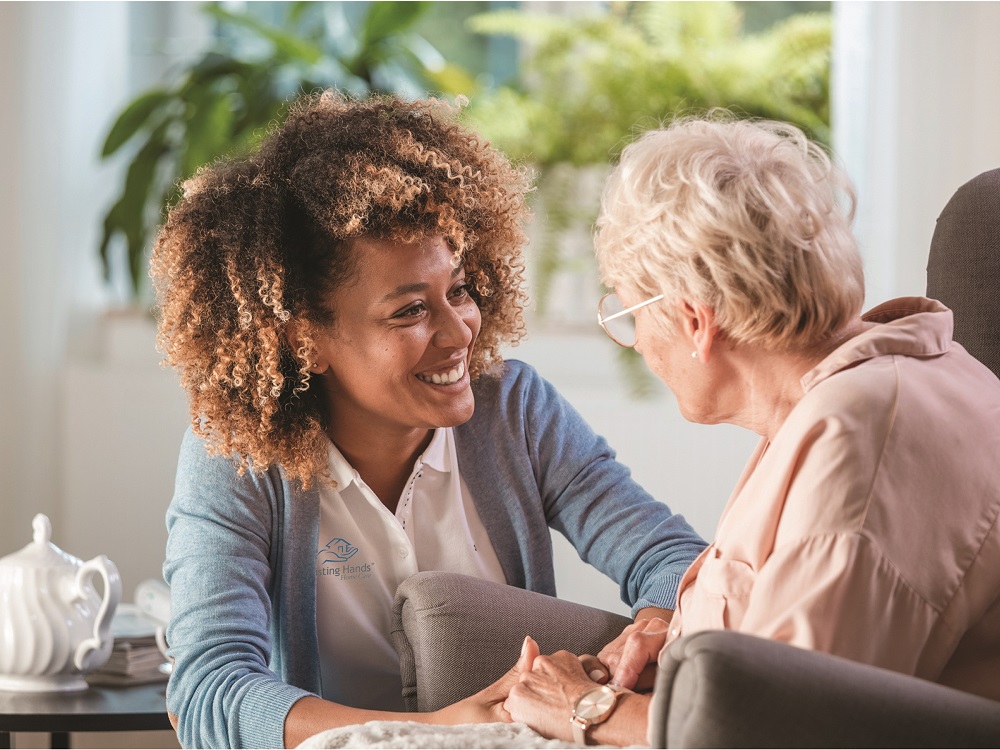
As a leader in elder care, Assisting Hands Home Care is staffed with teams of compassionate and experienced caregivers. We provide reliable live-in care and 24-hour home care services in Matteson, Crete, Lansing, Mokena, Bourbonnais, Frankfort, IL, and surrounding areas in Will County to ensure seniors receive help from morning and throughout the night. Our caregivers support seniors with the activities of daily living, enabling them to live comfortably in the familiarity of a home environment.
Typical responsibilities our caregivers perform daily include help with bathing, toileting, dressing, and grooming. We prepare nutritious meals and grocery shop. Professional caregivers provide seniors with transportation to doctors’ offices, social events, and to conduct errands. We’re pleasant companions, too.
Call us at (708) 880-7711 to learn more and schedule an in-home consultation.






